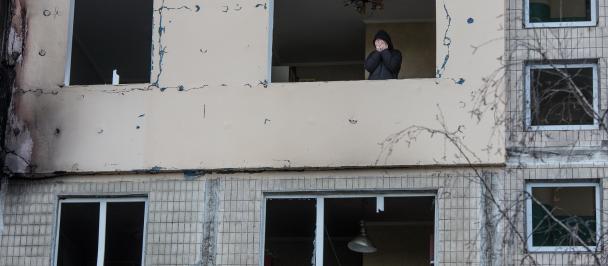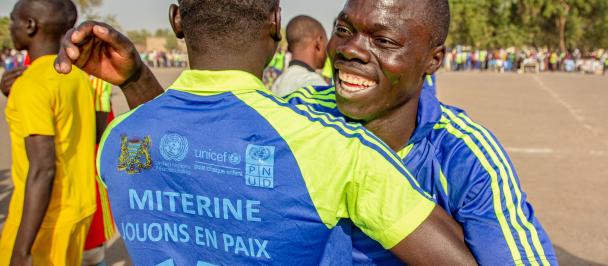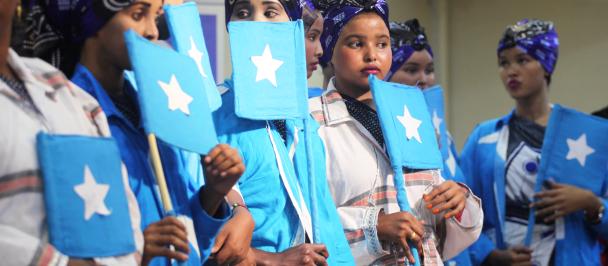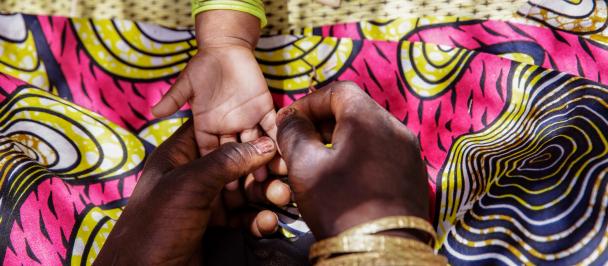“No peace without women,” is a statement we are all eager to agree with. But what are the nuances of women’s participation in peace, conflict and extremism today, and how can understanding women’s roles help us better support them - not only at the national peace table, but also as agents of change in their communities?
In broad lines, peace is understood today as inextricably linked with gender equality and women’s leadership in prevention, protection and peacebuilding efforts. This consensus was first articulated 18 years ago by the adoption of United Nations Security Council Resolution (UNSCR) 1325, and reaffirmed in the women, peace and security resolutions that followed.
However, much has changed in the world since 2000, in particular the rise in violent extremist activity. Unlike traditional conflict, extremist violence is not confined by borders and directly impacts both the Global South and North. The challenge of addressing extremist ideology has demanded a shift of our attention back to the human beings behind the extreme violence and the aspirations, motivations and identities that drive them. When seeking to mitigate extremism, it becomes abundantly clear that our goal should not just to end conflict; instead we should strive to contribute to build and sustain peaceful and tolerant, resilient societies.
For these reasons, violent extremism has re-opened the conversation around women, conflict and peace. Although the Secretary-General’s Plan of Action to Prevent Violent Extremism acknowledges the needs of women and girls, traditional counter-terrorism and Countering Violent Extremism (CVE) tactics are too often gender-blind. Too often they fail to build on the framework of the women, peace and security agenda or the lessons learned from gender in disaster risk reduction. While the perception may have moved away from viewing women solely as perpetual victims, classifying them binarily as either “victims” or “combatants” obscures the nuance of their roles in extremist conflict.
In reality, the roles of women in extremist settings are complex. Women may perpetuate extremism, either because they joined extremist movements voluntarily, or because they were forced to do so. Women may also be associated with male fighters as wives, mothers, daughters and community members. Women may act as peacebuilders, including through women’s organizations, using their influence in families and communities to deploy unique solutions to support prevention, de-radicalization, psychosocial support and rehabilitation from extremism. Finally women may move between these roles, depending on the situation they find themselves in and the opportunities they are given.
When we talk about “women,” we should be careful not to consider them a homogeneous group: women in extremist contexts vary widely in terms of their age, ethnicity, socioeconomic background, disability, migration status and so forth. Painting with a broad brush is counter-productive; we need information that can help us and our partners make targeted, gender-sensitive and intersectional decisions when designing programmes and policies.
Research helps us discern the particulars of understanding and addressing the complex needs of women in the prevention of violent extremism. It is a critical tool for filling data and knowledge gaps and for designing evidence-based programming. Under the umbrella of our four-year Global Programme “Development solutions for the prevention of violent extremism,” UNDP supports research initiatives and evidence-based dialogue at global and regional levels. We examine the factors that fuel radicalization and violent extremism as well as the drivers of peace. Our research agenda is steered by the Oslo Governance Centre, conducted in collaboration with UNDP regional hubs, and in partnership with academic and research institutions. To review progress made, and knowledge generated on gender-responsive violent extremism research, UNDP is organizing a second conference in Oslo (“Oslo II”) in May.
We prioritize research that elevates the voices and experiences of local women peacebuilders and women’s organizations. One of our current, on-going research initiatives, entitled The Role of Women in Violent Extremism as Perpetrators, Returnees and Peacebuilders, is carried out in partnership with the International Civil Society Action Network to bring to light the experiences of women in de-radicalization processes and document the strategies and approaches of women’s organizations that support returnees.
Taking a closer look at women’s roles in violent extremism reveals women’s flexibility, their resilience, and their potential to act as agents of change. While some women may indeed be perpetrators of extremism they are typically in the minority, and women even may exhibit a more socially cohesive tendency: UNDP’s recent report Journey to Extremism in Africa found that women were more likely than men to agree that people belonging to different religions should be treated equally.
Local women’s connections in their communities, understanding of culturally specific issues, and skill at mobilizing social capital positions them as strong interlocutors for peace. UNDP has previously highlighted the potential of grassroots women to lead resilience-building in their communities in the face of disasters – it is time to do the same for extremist contexts. If we aim to work towards a positive peace that is inclusive and sustainable, we will need to carry forth the work of Resolution 1325 and with that, we will need the help of women.

 Locations
Locations





